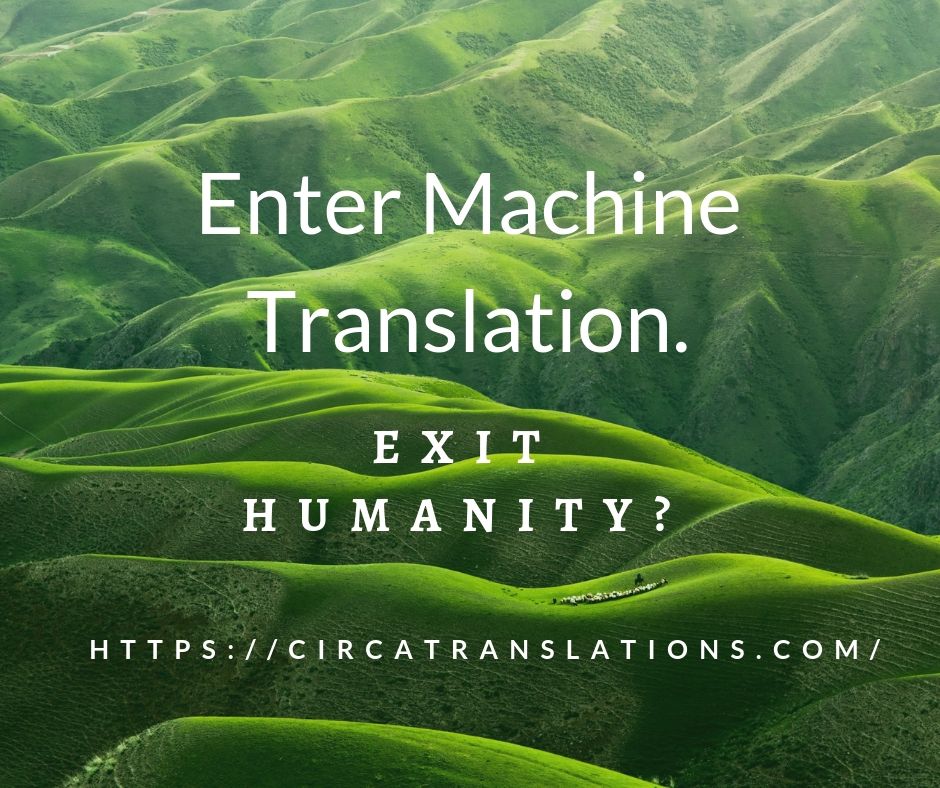Enter Machine Translation. Exit Humanity?
Translation is mainly humanistic.
Martin Luther had a problem. A word problem to be precise. He undertook a project that required insightful research into terminology, but some words were just impossible to find the equivalent for in the German language. To name the precious gems in the Book of Revelations, Martin Luther was able to visit the Elector of Saxony and learn the proper names to describe jewellery. He went to the slaughterhouse to learn the terms for different animal cuts when confronted with the sacrifices in the Book of Leviticus. To name the coins, Martin Luther visited coin collections in his city to learn vocabulary related to currency. He knew the words for certain bird and deer species in German, but what was he to do with animals such as tragelaphus, pygargus, oryx, and camelopard? Martin Luther’s German Bible was first completed in 1534. It was a painstaking venture. But his accomplishment gave the German people independent access to the Holy Book. For the first time, the German public was not relying on the elites to preach the Book to them in Latin. For the first time, the Germans could read the Bible in a language that was clear, idiomatic, and targeted towards the people. Martin Luther was a theologian, a religious reformer. But through his work with the Bible, Martin Luther was, above all, a translator. And he did his work without SDL Trados, Wordfast, or other Computer Assisted Technology (CAT) tools.
Now, imagine what the trained translator can accomplish today with the power of modern technology (in other words: limitless power) at their fingertips.
Translation is, in large part, a thankless job. Like the humble stagehand, translators labour behind the screens, where they receive little appreciation for their work and are often treated as disposable assets rather than an essential element of the formula.
But if machines can do translation, then why do human translators still occupy an important place in the work process?
Machine translation is a means, not an end.
Each profession has its own set of tools. Carpenters use saws and hammers. Painters use brush and paint. Translators use CAT tools. The carpenter’s, painter’s, and translator’s abilities are within, and without the right tools, the work can be more complicated, more laborious, and less precise.
But this is where Circa Translations come in. Combining human translators with the right tools of the trade, Circa’s translators produce artful translations that transform the client’s vision into something substantial. Translation has long been thought of as a commodity that could be ordered in bulk and applied across the board. Most clients focus on the price and the language combinations — and see those as the only defining criteria for choosing good translators.
However, important qualifications such as domain specialization, the ability to spot details, and a thorough understanding of the target audience’s language and culture are critical skills that machine translation would not be able to parse out on their own without the human touch.
Machines don’t evaluate the research, humans do.
Unlike machine translations, translators do not mechanically translate from language A into language B. Knowledgeable translators excavate the Web for relevant information to justify their translation decisions. Research is part of the translator’s services, and this is a process where humans and machines aid one another. The machines find and deliver the information in bulk, but it’s the human who decides what is important and what is not; a meticulous process that requires sustained concentration and persistence. The outcome is that the client can feel secure knowing that the final product went through a phase that guarantees the translated text’s validity, and it’s the human component in the whole process that ensures a greater return on investment.
Sources
Bainton, Roland. Here I Stand – A Life of Martin Luther. Plume, 1955.
Bussman, Kathrin, host. “Top Tips for First-Time Translation Buyers w/ Tanya Sapty”. The Worldly Marketer Podcast. 12 Sept. 2018. https://www.verbaccino.com/podcasts/twm-117-top-tips-for-first-time-translation-buyers-w-tanya-sapty/
—. “Using the Power of Collaboration to Go Global w/ Tanya Sapty”. The Worldly Marketer Podcast. 28 Mar. 2018. https://www.verbaccino.com/podcasts/twm-100-using-the-power-of-collaboration-to-go-global-w-tanya-sapty/
Leave a Reply

